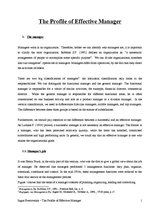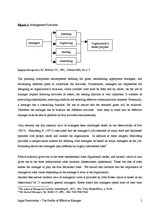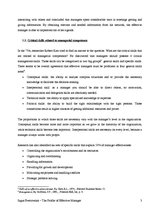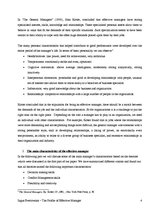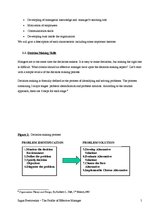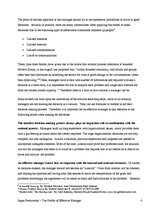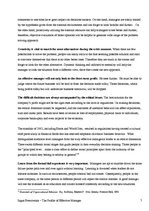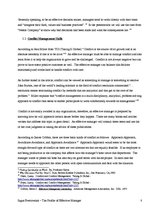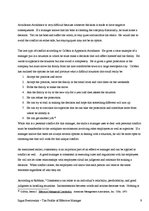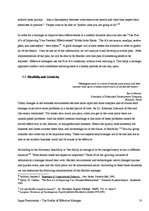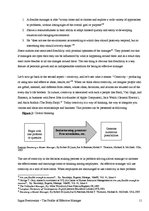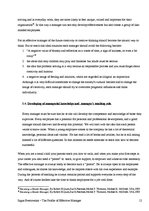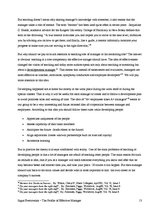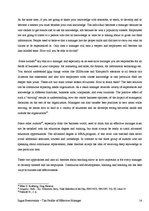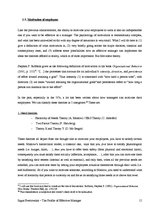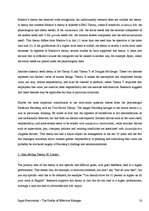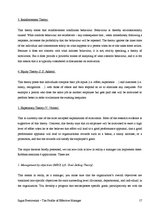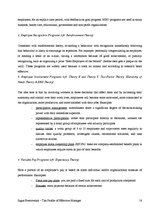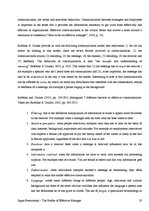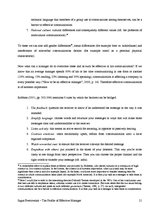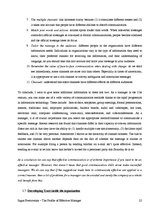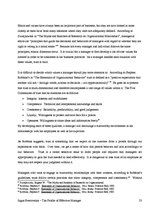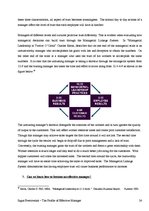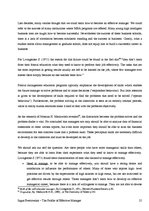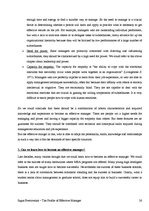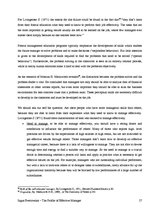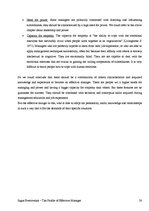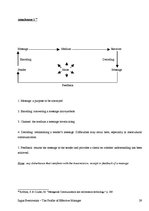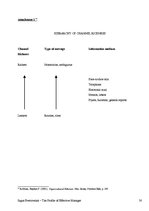-
The Profile of Efeective Manager
Managers work in an organization. Therefore, before we can identify who managers are, it is important to clarify the term organization. Robbins S.P. (1991) defines an organization as: “a systematic arrangement of people to accomplish some specific purpose”. We can divide organizational members into two categories1: operatives or managers. Managers differ from operatives, by the fact that they direct the activities of others.
There are two big classifications of managers2: the horizontal classification only looks at the responsibilities. We can distinguish the functional manager and the general manager. The functional manager is responsible for a whole of similar activities, for example, financial director, commercial director… While the general manager is responsible for different functional areas, he is often concentrated on one business activity and acts as a product manager or a division manager. In the vertical classification, we need to differentiate first-line managers, middle managers, and top managers. The difference between these three groups is based on the statute of subordinates.
Furthermore, we should pay attention to the difference between a successful and an effective manager. As Luthans F. (1988) proved, a successful manager is not necessary an effective manager. The former is a manager, who has been promoted relatively quickly, while the latter has satisfied, committed subordinates and high performing units. In general, we could say that an effective manager is one who attains the organizational goals.…
Referāts par menedžmentu un sīkāk par menedžeru, tā darbu, īpašībām utt. Noder arī kā mācību līdzeklis menedžmentā/vadības teorijā. Izmantota pārsvarā tikai ārzemju literatūra un internetā atrodamā informācija

